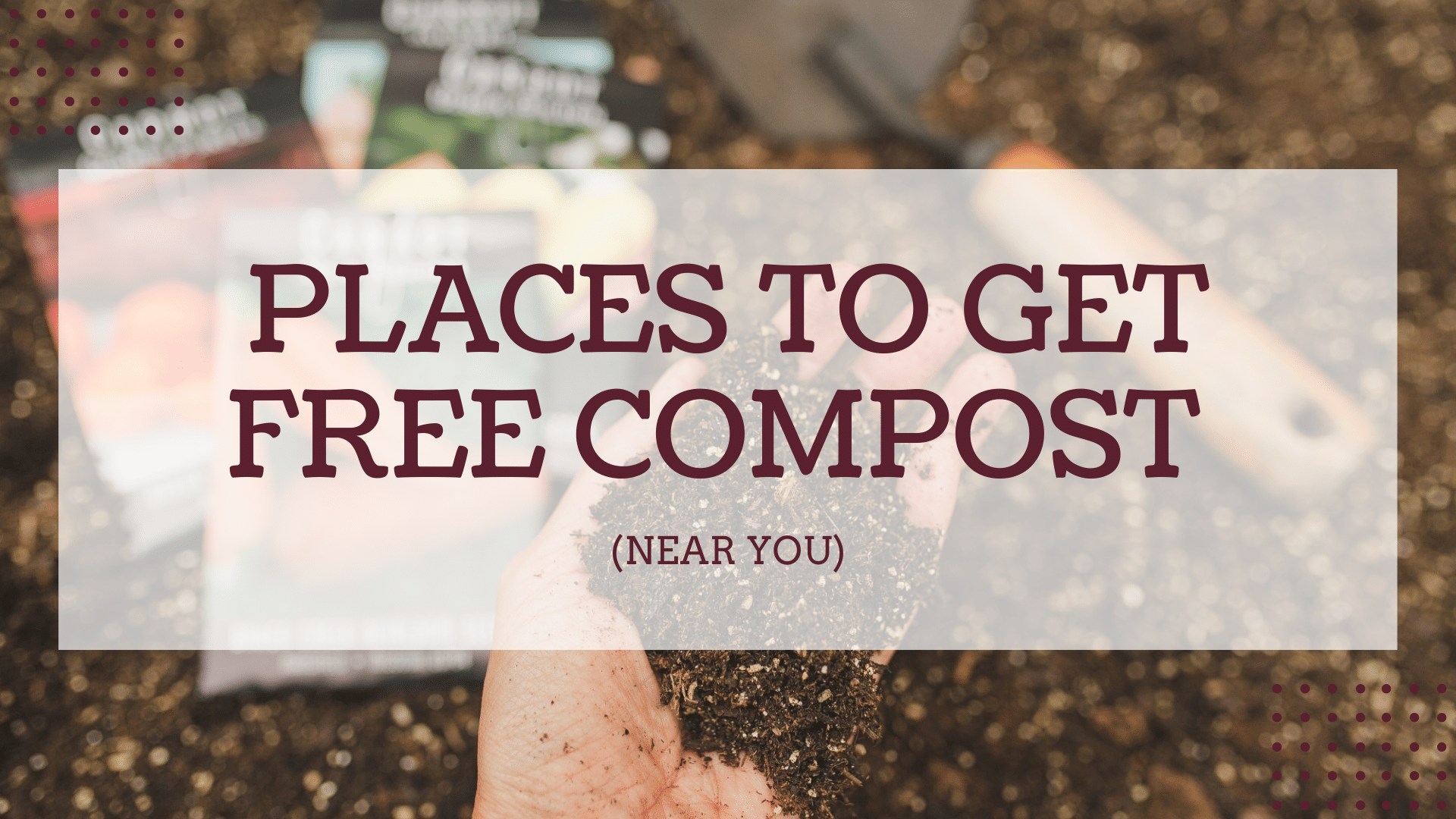Places To Get Compost For Free Near You
Important Note: When you buy through our links, we may earn a commission. As an Amazon Associate we earn from qualifying purchases. Content, pricing, offers and availability are subject to change at any time - more info.
Key Takeaways
- The best place to get free compost is right at your house. Starting a home compost heap is full of benefits.
- Some cities or local communities have composting programs that benefit the whole community. There are online platforms that may advertise free compost.
- Free compost is not always of great quality. Weed seeds, pathogens, and other undesirable materials may contaminate the compost.
- Free compost may require physical effort and driving a relatively far distance to collect it, depending on availability.
- Many places provide the materials for making compost for free.
Compost is a critical element to producing healthy, vibrant plants for most gardeners and homesteaders. The only issue is store-bought compost costs a significant amount as it must go from mulch to compost which takes time. In small “doses,” paying for compost is bearable, but should you need to break the bank balance for something that happens for free?
Advertisement
- Key Takeaways
- Free “Homegrown” Compost
- Free Compost In Your Neighborhood
- Free Compost That Is A Bit Further Away
- Related Questions
Free “Homegrown” Compost
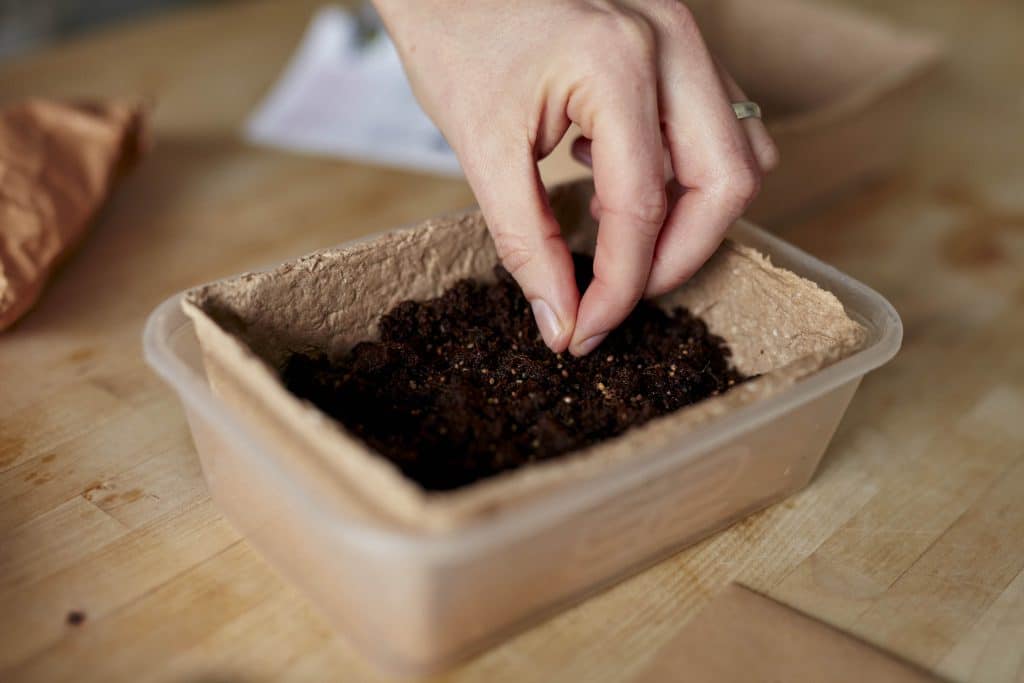
“Homegrown” compost is convenient in proximity, but there are some considerations to consider, such as the amount of time required to manage a heap.
Producing Compost Yourself
- Quality of compost: varies according to your expertise/materials
- Proximity to you: very close
- Effort in acquiring the compost: medium-high
- Other benefits: A great place to recycle kitchen and garden waste
Starting a compost heap of your own is a time and energy-consuming affair. However, the benefits exceed the drawbacks. A compost heap is a great way to reduce waste thrown into municipal trash (kitchen and garden).
Starting a family composting project is a great initiative if you have family close by (or older children). You take ownership of reducing your waste as a family, and you also share the workload and everyone benefits.
If your relationship with your neighbor(s) is good, a joint effort to start a compost heap on one of your properties is another great way to split the burdens and benefits.
Advertisement
Free Compost In Your Neighborhood
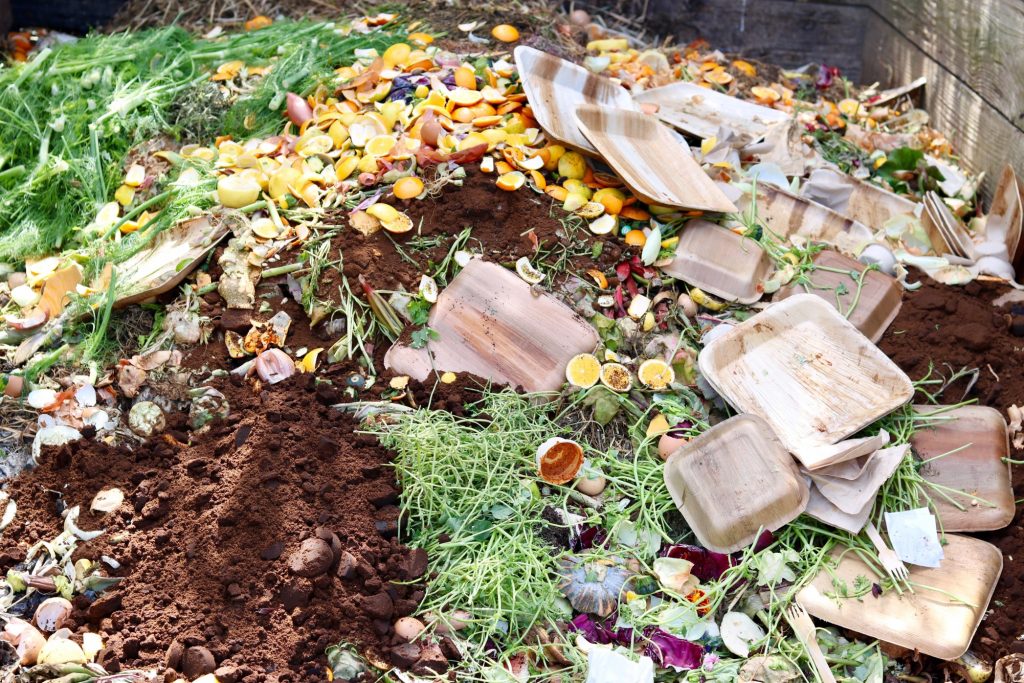
Many communities have composting programs and initiatives, which are potential sources for free compost. Where you stay contributes significantly to whether you have access to free community compost or not.
Community Compost Heaps
- Quality of compost: varied, but potentially good quality if a university is involved
- Proximity to you: close
- Effort in acquiring the compost: medium (more of a drive)
- Other benefits: the whole community benefits, reduces waste, schools get children involved, and you can sell the surplus
Everyone stands to benefit when a community gets behind a project, like composting. A community compost heap could be located at a school, university, community garden, or designated spot. The community manages it and has access to it.
If your community does not have a compost initiative, you could think about starting one. Approach a local school or university as they have sustainability programs that would benefit from a compost heap.
Some Cities Distribute Free Compost
- Quality of compost: generally good
- Proximity to you: drop off centers are usually close
- Effort in acquiring the compost: low
- Other benefits: local government bears the costs. The whole city benefits from better soil quality/production.
Similar to community-based composting, but on a broader scale. There is usually a drop-off point for organic waste (garden and kitchen), which the municipality collects. In return, residents receive the completed compost.
Not all cities have these initiatives. Certain companies like RethinkWaste, are prolific in giving away free compost to residents (two 50lb bags a week). They operate in the California region across 11 local governments.
Free Compost That Is A Bit Further Away
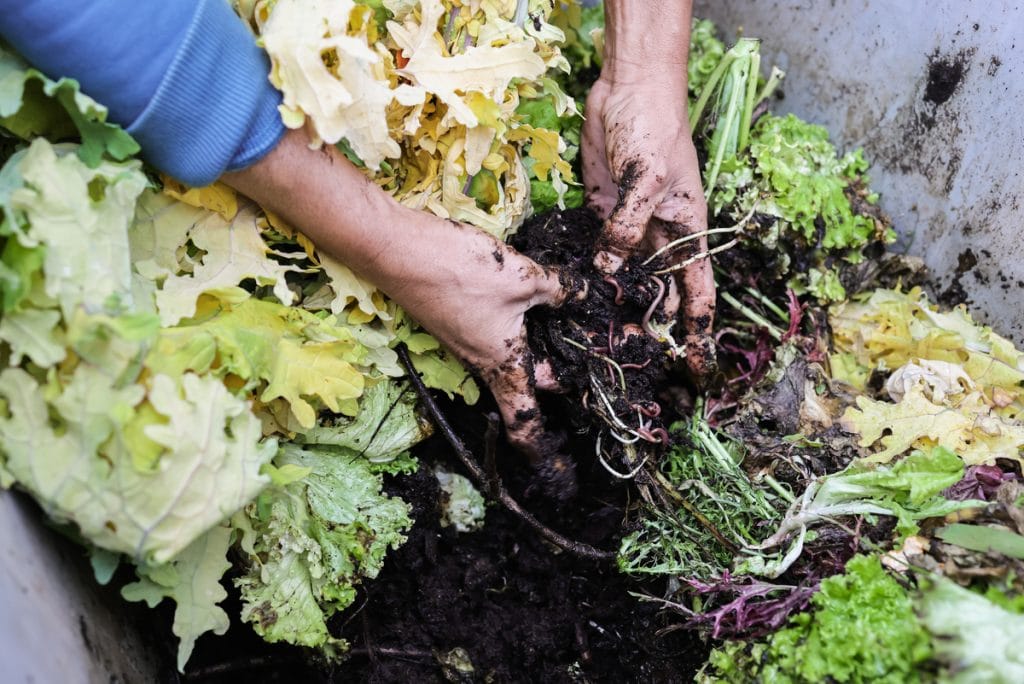
If your community or city does not provide free compost, going a bit further afield is the next step.
Advertisement
Asking Farmers Directly
- Quality of compost: varied
- Proximity to you: not so close (countryside)
- Effort in acquiring the compost: medium to high
- Other benefits: manure gathered holds its nutrients for up to 1 year. Compost from a farmer contains worms and other nutrients which may benefit the soil.
You might be able to grab some compost from an old field before it is plowed again.
While old fields are great for organic material-rich soils, you might be able to ask a farmer for actual compost. Sometimes there is an excess of manure and other organic waste that builds up and composts naturally.
A farmer may produce too much/not require the compost (especially if they farm with livestock and less with crops), in which case you can load up as much as possible.
Farmers often advertise on sites like EMSWCD when they have manure to give away.
Facebook Marketplace
- Quality of compost: varied
- Proximity to you: varied
- Effort in acquiring the compost: a long drive might be required
- Other benefits: The Facebook community reviews and rates suppliers, so it might be flagged if there is a problem.
Make sure to read reviews and ask for photos/information about the compost before collecting it, as free compost on Facebook Marketplace might be risky.
Facebook is widespread, so finding someone relatively close is likely.
CompostNow
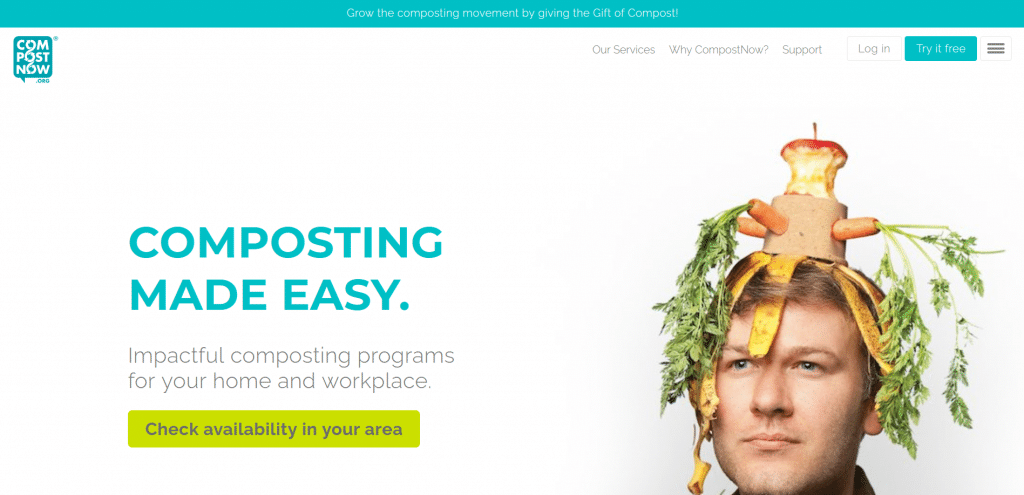
- Quality of compost: good
- Proximity to you: They deliver and pick up
- Effort in 7acquiring the compost: low
- Other benefits: a specialized company that produces good quality compost. Their service reduces waste in landfills.
CompostNow is a company that offers a compost collecting service. They provide the bins, collect the waste, compost the material, and drop off the completed product back to the community/business.
Advertisement
Other Online Platforms
- Quality of compost: varied
- Proximity to you: varied
- Effort in acquiring the compost: you’ll need to collect it
- Other benefits: a potential “gold mine” for free compost.
Sites like Craigslist, Gumtree, and OfferUp often advertise free goods, compost being one of them. The catch is you’ll need to check back frequently, as it is not always readily available (for free).
Related Questions
Should You Take Free Compost? (What Are The Risks)
Although your first thought might be to jump at free compost (especially if you have a large yard), it is advisable to pause and consider the potential shortcomings of “free-compost.”
- Weeds. Garden waste is often full of seeds from many unwanted plants. These seeds may persist and invade your garden.
- Herbicide/fertilizers. These chemicals persist in a compost pile and have knock-on effects on your garden.
- Pathogens. If a compost heap does not reach the desired temperature of at least 131°F, disease-causing organisms may persist, infecting your garden.
- Meat in the food scraps. Animal products are a no-go in compost heaps. Aside from harboring pathogens, they attract pests like rodents, raccoons, and coyotes.
The biggest risk of taking free compost is that you don’t know what went into it, nor how they made it. Even from a “trusted” source, be mindful of these factors.
Free Compost Vs. Store-Bought Compost: How Do They Compare?
There are pros and cons to store-bought compost and to free compost. The table below compares some of these.
| Compost type | Pros | Cons |
| Store-bought | ● From a trusted source ● The store is often liable if there are issuesMade with specific ingredients, in a particular way ● Compost to suit the needs of your garden | ● Expensive ● Sometimes there are still weeds and pathogens, which cause damage to gardens. |
| Free | ● No monetary cost ● Community composting benefits the whole community“Homegrown” is a reliable source of good quality compost, close by ● A great project to involve anyone interested | ● It may require driving great distances to collect it ● You may need to load the compost onto a trailer/collect scraps physically ● “Homegrown” composting requires time and effort to produce ● Some free composting is not well managed during the composting process and becomes diseased |
Where Can I Get Composting Materials For Free?
If you decide to make a compost heap, you’ll need carbon to nitrogen ratio of roughly 30:1. Carbon (brown materials) are usually sourced from wood chips, sticks, leaves, paper, or cardboard. Nitrogen (green) usually comes from grass clippings, vegetable scraps, or coffee grounds.
Some places to get free materials from:
- Parks, universities, schools. Autumn leaves are in abundance in these areas. By offering to rake up and cart off the excess leaves, you access free “brown” material.
- Restaurants. To get enough coffee grounds and “green” kitchen scraps, approach a local restaurant/diner and ask for their kitchen scraps, preferably from food prepping and not customer waste.
- Old newspapers may be available from news outlets, and zoos are great sources for finding out about shredded paper.
- Shops generally recycle cardboard boxes, but you may get a few before they are sent off if you are quick enough.
- Manure is a fantastic source of “green”waste, although you may need to clean out a stable/feedlot to gain access to it. There is also the potential for weeds and pathogens from manure.

